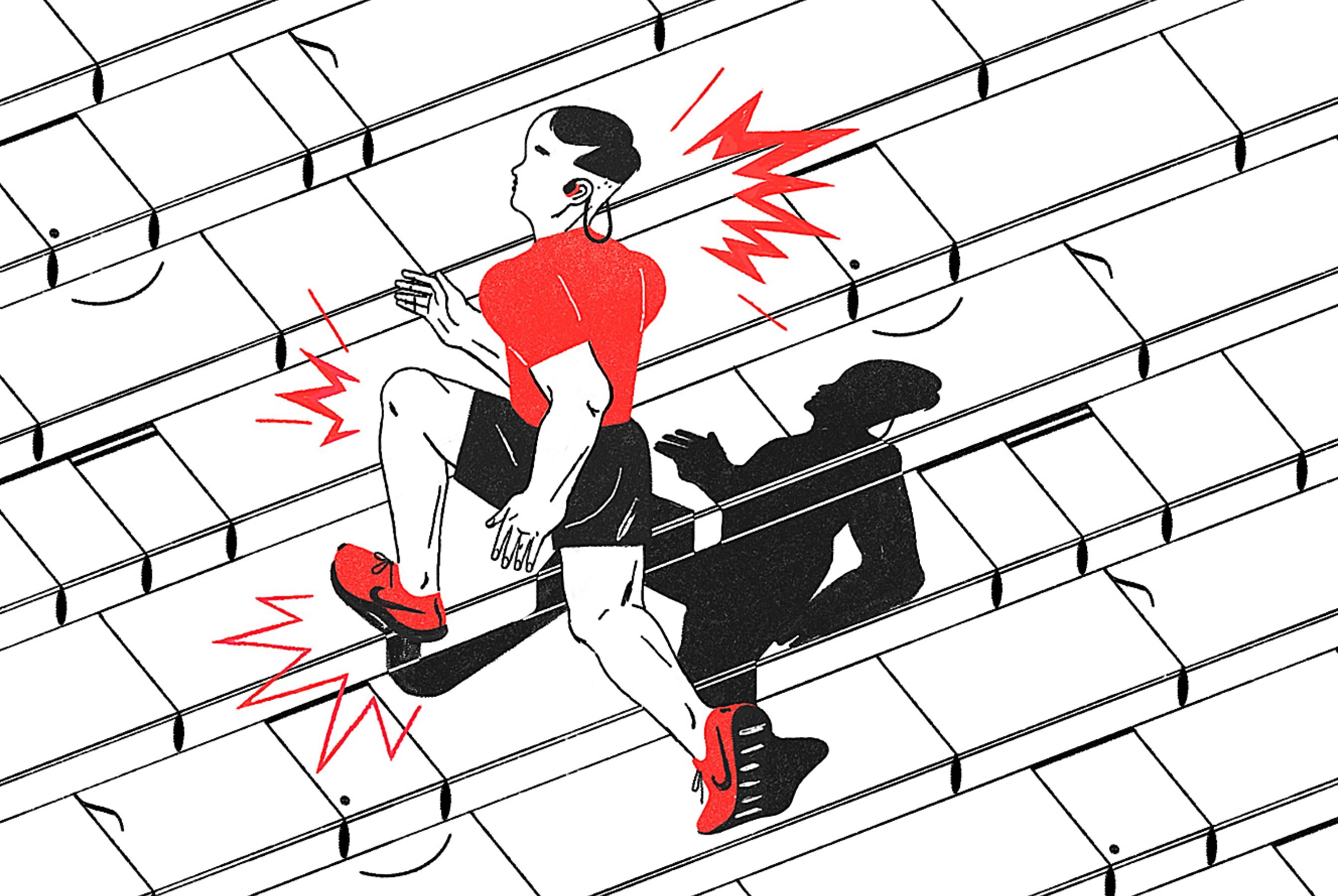How to Build a Playlist to Power Any Run
Coaching
The right music can help you move faster, longer and with a little more swagger. Here's what you need to know to be your own DJ.

If you've ever forgotten your ear pods for a long run, we're guessing you never made that mistake again, yeah? While listening to the thud-thud-thud of your feet, you probably realised that music can help you feel more energised, run faster, log more miles and create positive workout feels.
These perks aren't just perceived. There's real science behind them. For one, listening to music has been shown to increase your brain's levels of dopamine, a mood-boosting chemical, according to a study published in the journal Nature Neuroscience. So it stands to reason that pressing play at the right time can help motivate you to head out the door on those days you aren't sure you're feelin' it. Other research shows that music can help lower stress.
Beyond the good vibes, listening to music during a run can also strengthen the brain's signals that tell your muscles to activate, according to other research. Plus, it can help protect the brain from the performance-zapping effects of fatigue, says Marcelo Bigliassi, PhD, an assistant professor of psychophysiology at Florida International University.
All this could explain why runners in a Journal of Sports Sciences study enjoyed their interval workout more when they had songs to sprint to. It could also be why other research has found that jamming out to a fast playlist can coax you to run for significantly longer—which, BTW, could help you feel even more de-stressed after your sesh.
"If you have an opportunity to make hard work feel easier, why not do it?" says Chris Bennett (aka Coach Bennett), senior director of global running at Nike. "Adding music is one way to make something challenging less boring and thus a little less tough and more enjoyable".
Preach. Here's how to create your best running playlist to power your sweaty efforts.
"If you have an opportunity to make hard work feel easier, why not do it?"
Chris Bennett
Nike Senior Director of Global Running
1. Stick With Songs You Love
Just because your favourite indoor-cycling instructor loves blasting rap, doesn't mean that's necessarily the best genre for your playlist. Have a good think about what truly moves you and experiment as much as you need to. Then load your playlist with only those songs that you really dig. Whether it's the rhythmic drive of hip-hop or high-energy EDM, some research indicates that the more pumped you get about a song, the more it can boost your performance.

2. Focus on Feel-Good Lyrics
While you may belt out moody indie music or '90s grunge in the car, try to pick high-energy songs with positive, pump-you-up lyrics for runs. According to research published in the journal Psychology of Sport and Exercise, upbeat, motivational music can increase your power output during exercise and help you enjoy the workout more. Opt for songs with empowering words about your strength, will, etc., says Bigliassi—you know a confidence-boosting song when you hear it.
3. Build Your Playlist Around the Beat
Want a super-simple way to shift into sprint mode, hold a consistent pace or actually make yourself slow down for a recovery run? Try matching your music's tempo—aka beats per minute (BPM)—to your cadence, or how often your feet strike the ground. In a study published in the journal PLOS One, runners who did this performed significantly better than when they ran without music. It works like a metronome helping a drummer keep the beat.
For runs and workouts with an intensity of around 60 percent of your max heart rate (think: tough but not insane), the sweet spot for music tends to be between 120 and 140 BPM, says Costas Karageorghis, PhD, a professor in sport and exercise psychology at Brunel University London and the author of Applying Music in Exercise and Sport. But the right tempo depends on your run's needs. With that in mind, here's how to use that range to build a complete running playlist:
- Below 120 BPM: Great for warm-ups and easy or recovery runs, when you want to keep your heart rate and pace in check so you don't push harder than necessary, says Karageorghis. Also ideal for cooling down after a run, as the mellowness can help your blood pressure and pulse come down more quickly than listening to no music at all, research suggests.
- 120–140 BPM: Ideal for long runs and general training runs when you want to maintain or push your pace but aren't going for a PB.
- Above 140 BPM: Best for harder training sessions (75 percent and above of your max heart rate), race day and speed workouts, as research published in The Journal of Strength and Conditioning Research shows this tempo can give you more oomph. Unsurprisingly, the faster the BPM, the faster you're likely to move your feet, says Karageorghis.
ICYDK, to determine a song's BPM, you can find several apps and calculators online, or you can estimate it by tapping out the beat for 20 seconds, then multiplying that number by three.
Skip the Shuffle
If you don't feel like searching for music and making your own bomb list (fair), we've got you. For fully curated playlists to power all your runs, including some put together by athletes like Shalane Flanagan and Eliud Kipchoge, check out Nike playlists on Spotify and Apple Music. You can even listen to your list through the Nike Run Club App during Guided Runs. Songs will quieten down when coaching comes through, so you get the best of both worlds.
Words: Ashley Mateo
Illustration: Gracia Lam
Take It Further
For more expert-backed guidance on mindset, as well as movement, nutrition, recovery and sleep, check out the Nike Training Club App.
